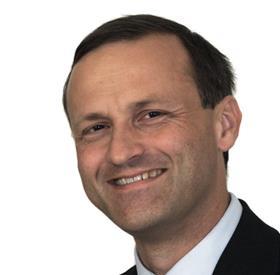‘Business as usual’ for UK pensions schemes following King’s speech

A new Pensions Bill for the UK has been announced alongside the King’s Speech today to legislate several key areas of pension policy. However, it represents ‘business as usual’ for pension funds as many policies have been introduced under the previous Conservative government.
Alongside the King’s Speech, Labour has published a full list of 40 key policy bills set to become law, one being the Pension Schemes Bill.
The measures in the bill include:
- preventing people from losing track of their pension pots through the consolidation of defined contribution (DC) individual deferred small pension pots;
- ensuring all members are saving into pension schemes delivering value through the Value for Money (VfM) framework;
- requiring pension schemes to offer retirement products so people have a pension and not just a savings pot when they stop work;
- consolidating the defined benefit (DB) market through commercial superfunds.
Calum Cooper, head of pensions policy innovation at Hymans Robertson, said it was encouraging to see the focus returning to “a pension being a pension; not just a savings product”.
He said the bill should empower new thinking and actionable innovation around retirement choices for DC members, adding that this should include sophisticated “straight through” decumulation products to help people navigate from work into retirement safely and successfully.
“Done well, it can also empower collective savings that deliver incomes for life at a higher level,” he said, noting that it was “clear” that the government wants pensions, and the National Wealth Fund bill, to play a role in providing meaningful stimulus to UK productivity.
He said: “For this, the pensions industry will need clarity – both a practical road map and clear and attractive opportunities to invest at scale.
“Hopefully, this bill will play an important part in stimulating this thinking and direction too. There is a huge societal opportunity in unlocking the productive potential of our £2.5trn of pensions.”
Nigel Peaple, director of policy and advocacy at the Pensions and Lifetime Savings Association (PLSA) said that no time “has been wasted” in bringing forward existing regulatory initiatives that already have the backing of the industry.
He particularly welcomed the measures to require schemes to offer decumulation solutions, and the creation of DB superfunds – both of which are key recommendations of the PLSA, he said.
He pointed out that the National Wealth Fund Bill, which was also announced in the King’s Speech, should also provide pension schemes with a viable vehicle to invest in exciting growth areas and the Employment Bill should bring more people into automatic enrolment and ensure better pension provision for lower earners.
“We look forward to working with the government as it develops its proposals and brings this legislation forward,” Peaple said.
Consolidation
Steve Webb, partner at LCP, said that while the government wants to drive out the smallest pension schemes, it is “important” to remember that the vast majority of people are not saving in small pension schemes.
“What matters to most savers is the performance of the largest schemes, including industry-wide master trusts, and the new VfM framework is unlikely to change much for those schemes, at least in the short term,” he said.
According to Webb, one area where the new government may need to take further action is on the consolidation of small deferred pension pots.

He said that the measure included in the Pension Schemes Bill was designed to deal only with ‘micro’ pension pots under £1,000. He explained that this will leave millions of people with slightly larger pension pots which will remain fragmented and scattered across the pensions landscape.
“Unless the consolidation of micro pots is radically expanded, fresh policy thinking will be needed to tackle the issue of pension fragmentation,” he said.
One initiative that might have been expected in the new Pensions Bill but appears to be missing is legislation to allow the Pension Protection Fund (PPF) to act as a ‘public sector consolidator’ of small DB pension schemes.
However, according to Webb, it may simply be because the necessary legislation could not be prepared in time, rather than that the new government had dropped this idea.
Overall, Webb said the Pension Schemes Bill “very much represents ‘business as usual’ when it comes to pensions policy”.
He pointed out that there is nothing in the legislation that so far represents a distinctively ‘Labour party approach’ to pensions, and added that a Conservative minister could “happily have brought forward this legislation”.
He continued: “Perhaps inevitably, it will take time before we see how the new government’s agenda differs from that of its predecessor. But this does mean that any distinctive policies will have to await legislation later in this Parliament and may take time to have effect,” he said.
More detail needed

Eve Read, senior director of strategic delivery at Smart Pension, said that while it was promising to see “some further detail” on reforms impacting savers through the Pension Schemes Bill, it was disappointing that there was no more detail on the pensions review mentioned in Labour’s manifesto, including some specific thoughts around the expansion of auto-enrolment or increases to contribution rates, to ensure better outcomes and financial security for people in retirement.
She said: “Implementing the VfM framework, solving the small pots challenge and ensuring retirees have access to suitable options at the point of retirement are important, but ensuring savings adequacy should be a priority, and we urge the government to include some provision for this in addition to the changes already mentioned in the upcoming Pension Schemes Bill.”
She pointed out that the expansion of auto-enrolment has already been legislated for, and the new government should “quickly announce its implementation”.
This was echoed by David Lane, chief executive officer of TPT Retirement Solutions, who urged the government to implement the “much-needed” pension reforms that do not require new primary legislation.
The most important of these, he said, is reducing the age for auto-enrolment to 18 and abolishing the lower earnings limit for contributions.
He said: “These changes could significantly increase the retirement savings of thousands of workers.”
Read the digital edition of IPE’s latest magazine
Related
Why investing in women is a vital next step for…
Get Nadine White's Race Report newsletter for a fresh perspective on the week's newsGet our free newsletter from The Independent's Race CorrespondentGet our fre
Business secretary signals major shift on electric car policy to…
In a determined effort to retain Nissan’s manufacturing presence in Britain, Business Secretary Jonathan Reynolds has vowed to implement “substantial c
Joint Statement: Business Secretary and Fujitsu Services Ltd
Business and Trade Secretary Jonathan Reynolds today (Friday 7 March) met chiefs for Fujitsu in Tokyo to begin talks over the cost of redress for victims of th
UK foreign secretary backs multilateral defence funding for Europe
UK foreign secretary David Lammy has said that a new multilateral fund will be needed to secure Europe’s defence as he confirmed that Britain is “open to”













